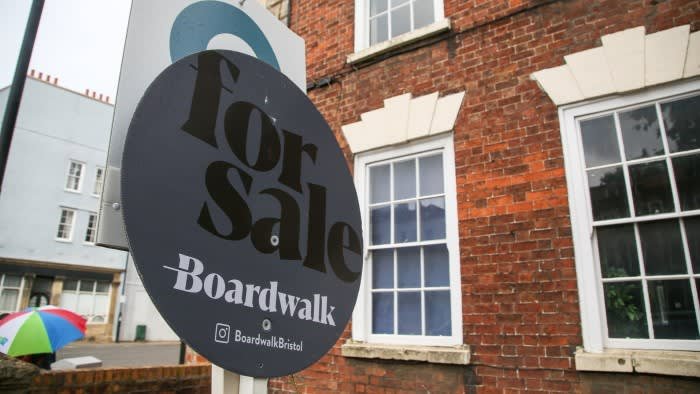Stay informed with free updates
Simply sign up to the UK house prices myFT Digest — delivered directly to your inbox.
UK house prices rose at the fastest annual pace since the end of 2022 last month, beating expectations as the Bank of England announced it would cut interest rates from their 16-year high on Thursday.
Prices increased 2.1 per cent year on year in July, representing a monthly rise of 0.3 per cent, according to the latest figures from building society Nationwide.
Economists polled by Reuters had expected prices to rise by 1.8 per cent and 0.1 per cent, respectively. The figures will raise hopes that a softening in borrowing costs could be feeding a recovery in demand from housebuyers.
The BoE cut interest rates by a quarter of a percentage point to 5 per cent, the first drop in more than four years. Mortgage lenders had dropped their rates in recent months as expectation of the move mounted.
Estate agency Knight Frank said the rate cut would be “transformative” in its impact on sentiment.

Tom Bill, head of UK residential research at Knight Frank, said he expected there to be “pent-up demand” from housebuyers that could be released as more mortgage rates fell below the 4 per cent threshold seen as important by brokers.
“Demand is there and it has been building under the surface,” he added. He expects a busier autumn for transactions, barring negative surprises, arguing that the snap election had prompted some buyers to delay their moves.
Robert Gardner, Nationwide’s chief economist, said housing market activity had been “holding relatively steady in recent months”, highlighting mortgage approvals of about 60,000 a month, a recovery from the disruption caused in the wake of the 2022 “mini” Budget. That was a “respectable pace”, he said, but still below pre-pandemic levels.
The average price of a house in the UK was £266,334 in July, according to the Nationwide data. Prices are still nearly 3 per cent below their all-time highs in the summer of 2022.
Separate data published by index provider MSCI on Thursday for the commercial property market showed that conditions were improving in the UK.
Year-on-year commercial property investment in the UK rebounded in the second quarter, while dealmaking in Germany and France fell, the MSCI data showed. Overall, European commercial property investment levelled off, it said.
“It’s too soon to start celebrating, even if the worst of the downturn since mid-2022 may be behind us,” said Tom Leahy, head of Emea real estate research, adding that the office market remained in the “doldrums”.
But the “ingredients for a broader-based recovery are gradually coming together”, he added.

